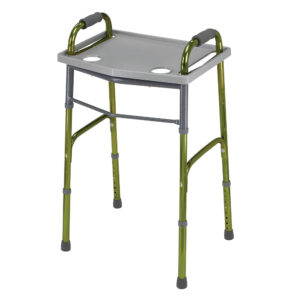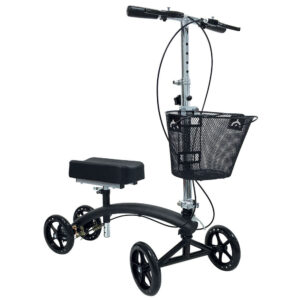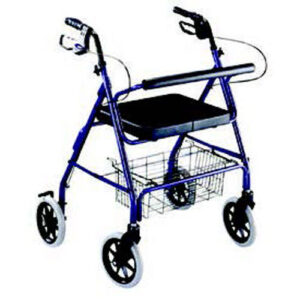Walkers
Description
What’s the Purpose of Walkers?
The primary function of walkers is to furnish individuals with additional support and stability, enabling them to stand and move around more securely. There’s a diverse range of walker types available, catering to various mobility needs. Although walkers find utility across different life situations, they’re commonly employed to enhance balance and support, particularly in the aging population. Often, walkers serve as a permanent aid to sustain mobility, obviating the need for a wheelchair. In some scenarios, they act as a temporary solution, providing safety during post-surgery recovery or injury rehabilitation. The supplemental support proves highly beneficial during healing processes or engagement in physical therapy.
Unpacking Folding Walkers
Among the prevalent walker options today, folding walkers stand out as a popular choice. In fact, the majority of walkers adopt a folding design owing to its modern appeal. These walkers are crafted to effortlessly fold in on themselves, facilitating convenient storage under beds, in closets, or other out-of-the-way spaces. When ready to use the walker again, a simple unfolding of the side arms, which securely lock in place, allows for normal functionality.
Mastering Walker Adjustment
Adjustable walkers offer the flexibility to accommodate a range of heights, ensuring safe and comfortable use. Although designs may vary, the typical adjustment involves pressing and holding a button on each leg. Holding the button in, extend the walker leg until it locks in place on the desired hole. Repeat this process for each leg to maintain even height. While some walkers may feature a single-button adjustment for all legs, most necessitate individual adjustments to ensure uniformity.
Mobility Walker Insights
Often employed by elderly or disabled individuals seeking additional support while walking, walkers serve as robust aids providing balance and stability. Particularly beneficial for those not yet requiring a wheelchair, walkers are ideal for individuals prone to falls, dizziness, or occasional loss of balance. They also prove advantageous for those dealing with shortness of breath during walks.
Diverse Walker Categories
Standard walkers, lacking wheels and suitable for indoor use on hard floors, provide basic stability assistance. Wheeled walkers, designed for outdoor use, feature fixed front wheels for stability on uneven ground. Rollator walkers, equipped with four wheels, offer enhanced maneuverability on various surfaces, both indoors and outdoors. Some walkers come with built-in seats, making them versatile choices for users who may need to take breaks. Lightweight, foldable walkers are recommended for travel due to their compact and collapsible design, easily fitting into car trunks or closets. Walkers with chairs provide an excellent option for users who require periodic rests, offering added convenience with features like attached storage for personal items.




